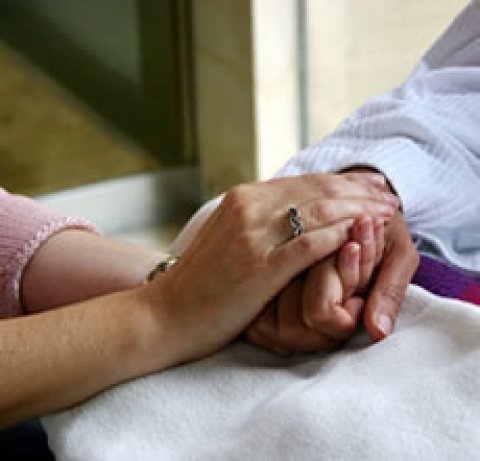
Christmas is fast approaching, for most of us it is a time for families, when we come together across the generations to share and spend time together. But what of our families in the rest of the year? Stories of isolation of older people and a ‘couldn’t care’ attitude amongst the young make the headlines. But in my work with Labour’s Commission on Older Women I have heard a different story: of families relying more than ever on each other, and older women at the centre holding things together.

Over the last two years, the Commission on Older Women has listened to the views and opinions of many older women– we held events in their workplaces, organised meetings and took evidence from individuals, academics, charities and voluntary organisations. We heard that families are under pressure because of the economic downturn – experiencing low pay, spiralling prices and cuts to benefits and services. So families have pulled together to ‘square the circle’ and make their lives work.
And if both parents are at work, government cuts to childcare have left them struggling to cope. Older women told us how, in many cases it is grandma who steps in to help, picking up at the school gate and looking after the grandchildren in the holidays. But these same older women are also stepping up to look after their elderly parents as they age and need care, becoming a ‘sandwich generation’, caring for both younger and older generations at the same time.
Most older women do not resent these responsibilities. They want to be involved, but they also want recognition for what they do, they need good health and social services providing the core of care for elderly or disabled relatives, and support to allow them to fulfil their responsibilities without sacrificing their own lives and prosperity.
The workplace is changing: women whose mothers often left the workforce after having children now want and need to stay at work, to allow them to pay the bills today and save for their retirement – further off now due to the changes in the state retirement age. The Tories don’t tire of reminding me that more women are in work than ever, but the fact that more women over 50 are looking for work means that these increases in employment have not been mirrored by decreases in unemployment. In fact the only cohort in the population which, according to government figures, has experienced an increase in unemployment is women aged 50+.
And in work, these women get paid less. The average full-time salary for women over 50 is just over £15,000, four-fifths of the earnings of men of the same age. Most women of this age work part time and take home less than £10,000 a year. Tax threshold changes, trumpeted by the coalition government as helping low paid workers, haven’t affected the incomes of these women, and zero hours contracts, termed ‘precarious work’ by the TUC, are prevalent in sectors dominated by older women.
Balancing work and care is a problem and many older women find no easy solution, some reduce their working hours others give up work altogether to manage. And when caring comes to an end or becomes more predictable, they struggle to get back to work. The Work Programme doesn’t help, it has found sustained employment for only just over 10 per cent of the women aged over 50 referred to it – lower than the level for men in the same age group and for all other groups.
Labour is committed to finding ways to allow people to work and care. Carers need flexible work, access to caring leave and opportunities to take time out to adjust to changes in caring responsibilities and return to work when a sustainable way forward has been found.
The Commission on Older Women calls for a new politics which will enable older women to find balance in their lives. Their needs and aspirations are not unique – good quality, fairly paid and secure work, an adequate pension on retirement, support for them as they work and care and an opportunity to contribute to public life without disappearing, as we found so many do from our TV screens as they age.
This can be delivered: older women will drive the process. Policy-makers need simply to identify the relatively modest adjustments which make their lives possible, eliminating the impossible choices that too many face.




More from LabourList
‘Labour council candidates – it’s tough, but all is not lost’
‘Labour won’t stop the far right by changing leaders — only by proving what the left can deliver’
‘Cutting Welsh university funding would be economic vandalism, not reform’